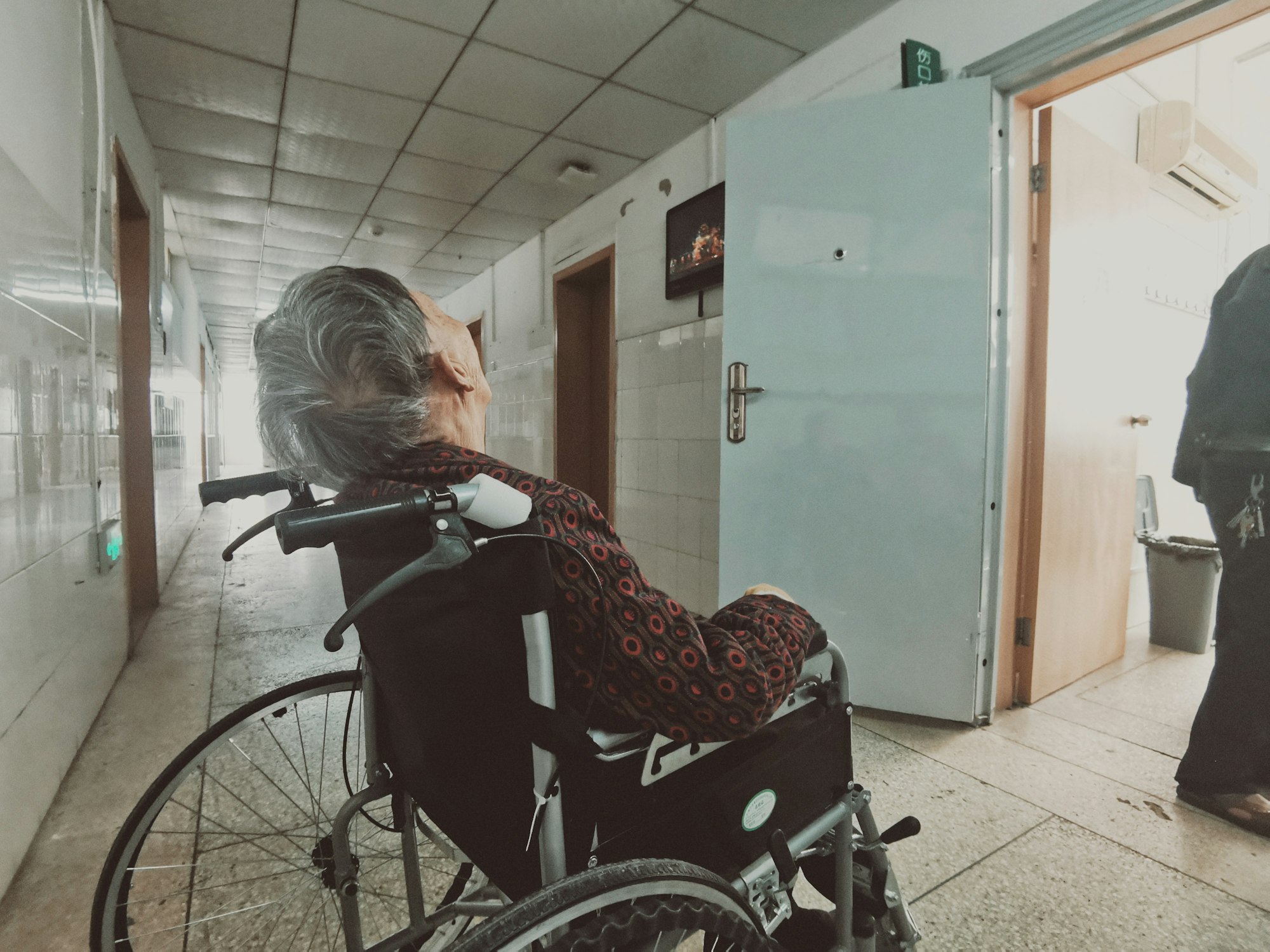Safeguarding meaningless on basis of "gender identity"
Surely a nursing home or other care setting needs to know and protect residents on the basis of their sex and also ensure that it's sex, not gender identity, which is of critical importance when it comes to accommodating male residents or employing male staff?

“Far from being abusive, prejudiced or hateful, ‘misgendering’ – that is, referring to trans-identified people’s biological sex – is actually essential in lots of situations. Those include safeguarding, which is central to social work."
said Helen Joyce, journalist and Director of Advocacy at Sex Matters commenting on the case of the British social worker Louise Chivers
"..who has been told she cannot apply for social services jobs pending an investigation after a manager at Leicestershire County Council suggested there was a risk she 'might misgender someone'."
Writing in the same article in The Telegraph Louise Chivers herself makes the points that
"Every week, social workers have to make decisions on whether people have 'capacity' in a whole range of choices.
They then have to make 'best interest decisions' if the person doesn’t, which requires critical thinking skills.
Social workers who do not think critically and follow the affirmation dogma will set vulnerable adults on false affirmation pathways."
The same could be said of organisations here in Ireland which are concerned with the safety of vulnerable adults in care settings or hospital wards for instance.
Safeguarding Ireland is one such body which
"was established to promote safeguarding of adults who may be vulnerable, protect them from all forms of abuse by persons, organisations and institutions and develop a national plan for promoting their welfare."
It offers an Adult Safeguarding Charter which organisations are encouraged to sign up to. But instead of protecting the important distinction of sex this voluntary Charter instead uses "gender identity":

Last month we learnt that a convicted sex offender who was admitted to a nursing home from prison ended up abusing other residents.
"The man’s background was not made known to the operators of the nursing home because of data protection rules.
The revelation was made by the chairperson of Safeguarding Ireland Patricia Rickard- Clarke, who said private nursing homes in particular can be left in the dark about the background of residents."
Ms Rickard-Clarke was speaking after a separate HSE report involving a healthcare worker with no previous convictions was jailed for raping an elderly female resident. There were further allegations made against the same worker but according to the governance review by the National Independent Review Panel (NIRP) none of the incidents were followed up in accordance with HSE safeguarding policy. As RTE's Dr Gavin Jennings asked on News at One:

Last month An Taoiseach Leo Varadkar pledged to increase safeguarding laws as soon as possible.
But organisations which agree to uphold the "rights and freedoms" of all those who engage with them regardless of "gender identity" as set out in Safeguarding Ireland's Adult Safeguarding Charter are themselves running the risk of vulnerable women of any age finding themselves in the care of a man who "identifies" as a woman when such women might not want a male carer or might expressly say they only want a woman to care for them, especially where care of an intimate nature is required.
Safeguarding Ireland was asked about this policy a year ago and they said there was a "commitment to review and update the Charter in 2023". Asked again this month Safeguarding Ireland said that
"The Charter is scheduled for review and the wording will again be considered as part of that process."
Relying on an individual’s claimed “gender identity” will of course leave private nursing homes “in the dark” about the background of residents. In addition, under the Gender Recognition Act 2015 having a criminal record is not a bar to obtaining a Gender Recognition Certificate, as the Department of Social Protection has confirmed:

If our Criminal Justice (Incitement to Violence or Hatred and Hate Offences) Bill 2022 goes through unamended it appears possible that it will have at the very least a chilling effect on an organisation’s ability to query the status of those seeking accommodation or work in such organisations as nursing homes or centres caring for the disabled.
Surely a nursing home or other care setting needs to know and protect its residents on the basis of their sex, and ensure that it's sex, not gender identity, which is the critical issue to be known and acted on when it comes to accommodating male residents or employing male staff?


